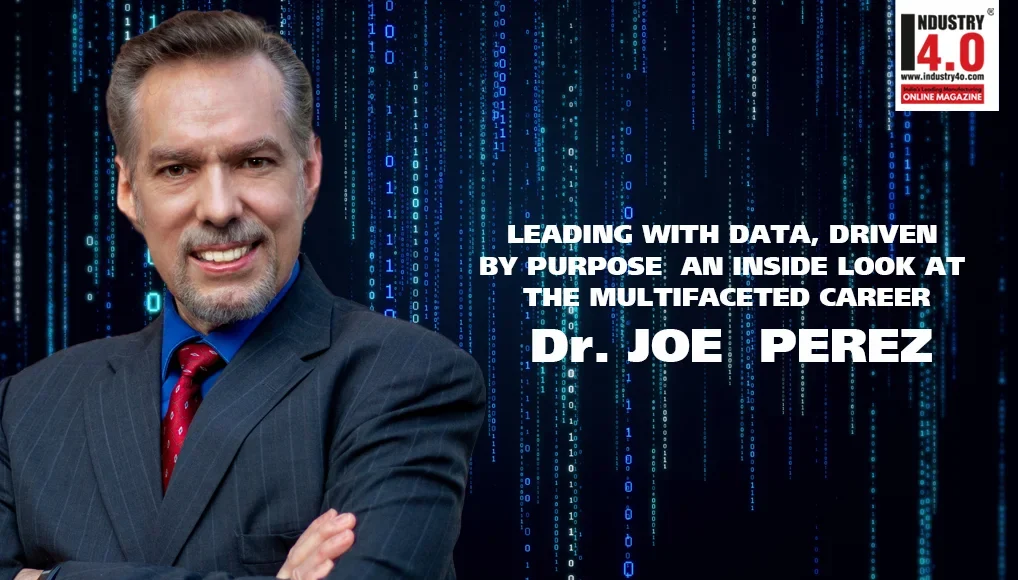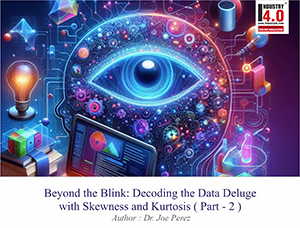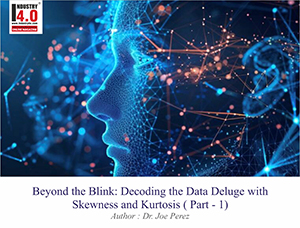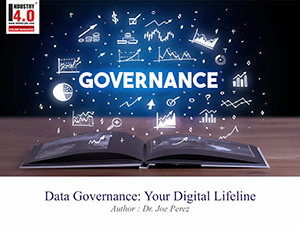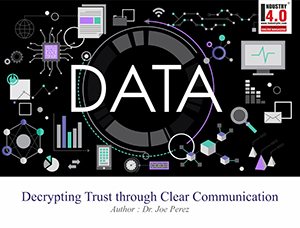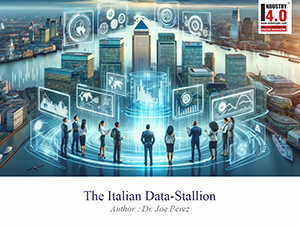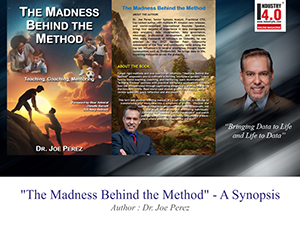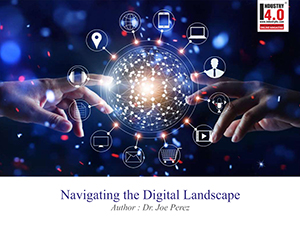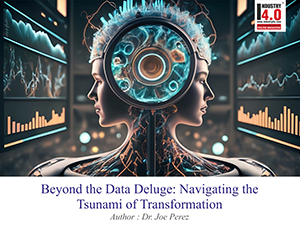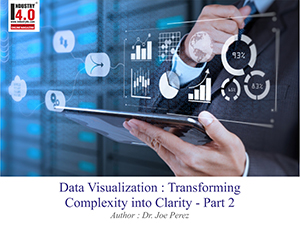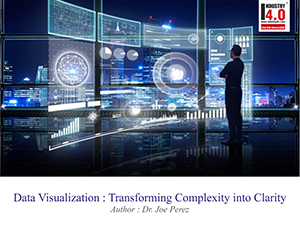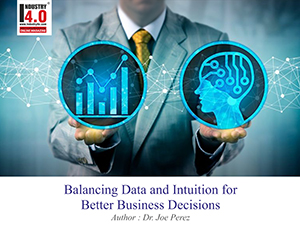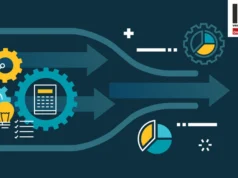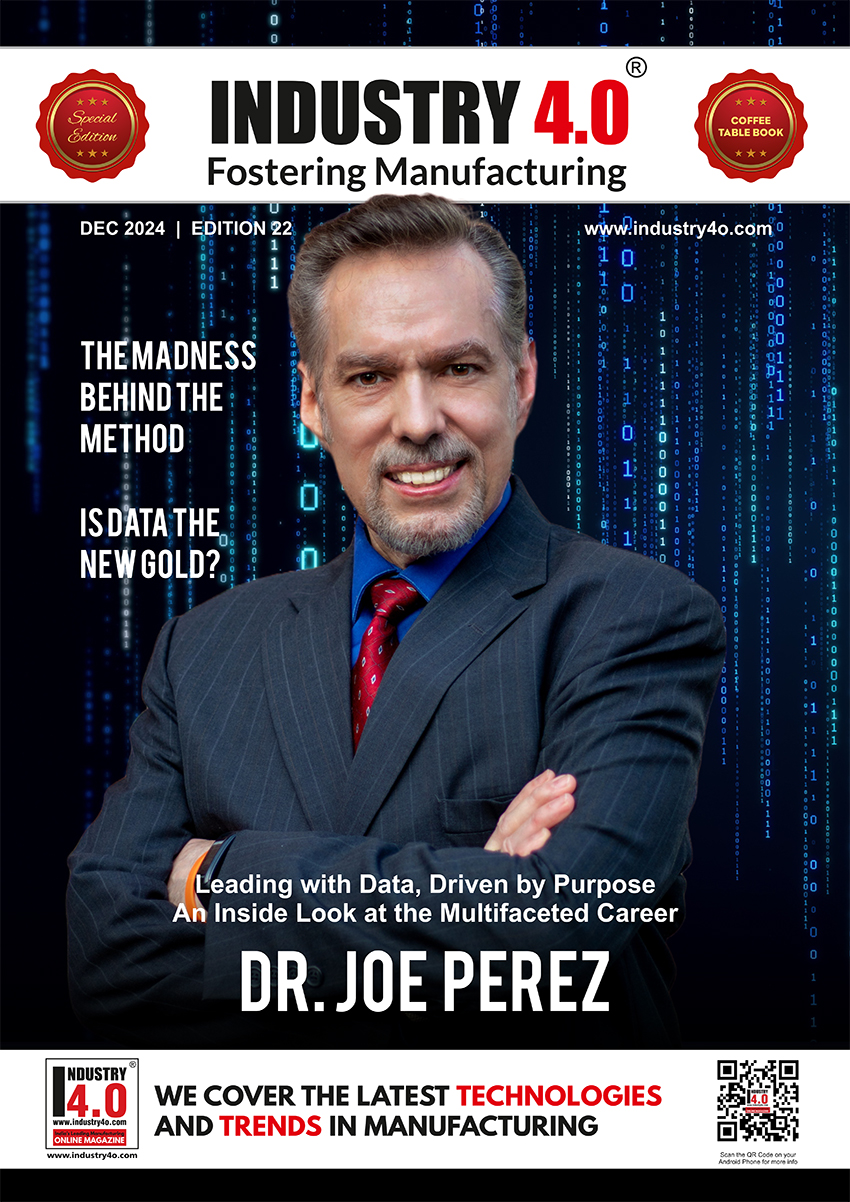 Information is the oil of the 21st century, and analytics is the combustion engine
Information is the oil of the 21st century, and analytics is the combustion engine
In our digital age, information flows at an unprecedented pace, echoing the words of prominent business leader and former Global Head of Research at Gartner, Peter Sondergaard: “Information is the oil of the 21st century, and analytics is the combustion engine.” This aptly captures the transformative power of data, an intangible asset, yet viable form of wealth that is meticulously collected, stored, and analyzed by corporations, governments, and individuals alike. Its potential impact transcends mere financial gain, prompting the question – is data simply a valuable commodity, or does it hold a deeper significance in shaping our world?
A Historical Parallel: The Enigma Machine and the Dawn of the Information Age
During World War II, the seemingly unbreakable Enigma machine played a pivotal role in Nazi Germany’s communication strategy. This complex cipher device encoded messages, rendering them unintelligible to Allied forces. However, the tide turned when Allied codebreakers, led by British mathematician and logician Alan Turing, cracked the Enigma’s code. By meticulously analyzing intercepted messages and leveraging nascent computing technologies, they unlocked a treasure trove of enemy intelligence. This not only shortened the war but also marked a turning point in the understanding of information as a strategic asset. The Enigma story exemplifies the transformative power of data analysis, highlighting its ability to unlock hidden insights and fundamentally alter the course of history.
Data’s Expanding Reach: From Business Decisions to Scientific Breakthroughs
Today, data’s influence extends far beyond wartime code-breaking. Businesses leverage consumer data to personalize marketing campaigns, optimize product offerings, and predict market trends. For instance, Netflix, a data-driven giant, analyzes viewing habits to recommend personalized content, tailoring experiences for millions of subscribers. This data-centric approach has revolutionized the entertainment industry, demonstrating the power of data in driving business success.
Beyond the realm of commerce, data is fueling scientific advancements across diverse fields. Researchers analyze vast datasets of genetic information to unlock the secrets of diseases, leading to breakthroughs in personalized medicine. Climate scientists meticulously track environmental data to understand and predict the impact of climate change, informing crucial policy decisions. These examples showcase the multifaceted value of data, not just as a business tool but as a catalyst for scientific progress and societal well-being.
This sets the stage for our exploration into the intricate world of data. We will take a deeper look into the factors driving its exponential growth, explore the diverse applications of data across industries, and critically examine the ethical considerations surrounding its collection and usage. Join us as we uncover the transformative power of data analytics, navigate the challenges of data governance, and unlock the potential of this valuable resource to shape a brighter future. We will explore historical examples of how data has been used, analyze the economic impact of data, and discuss the importance of responsible data practices in our increasingly interconnected world. Let’s discover for ourselves whether data truly holds the power to become the new gold.
The Golden Rush: Unearthing Data’s Value
Just as prospectors once traversed treacherous landscapes in search of precious metals, the modern quest for valuable resources has shifted to the digital realm. Data, the new frontier, lies buried beneath layers of code and digital interactions, waiting to be unearthed. Unlike its physical counterpart, data’s value isn’t measured in tangible units; it lies in the potential to generate insights, predictions, and ultimately, power.
From Consumer Habits to Market Trends: The Power of Consumer Data
One of the most prominent areas where data shines is in understanding consumer behavior. Companies meticulously collect and analyze data points ranging from online purchases and browsing history to social media interactions and sentiment analysis. By identifying patterns and trends within this vast ocean of information, businesses gain invaluable insights into consumer preferences, purchasing habits, and market sentiment. This empowers them to make informed decisions about product development, marketing strategies, and customer service, ultimately leading to increased efficiency, profitability, and customer satisfaction.
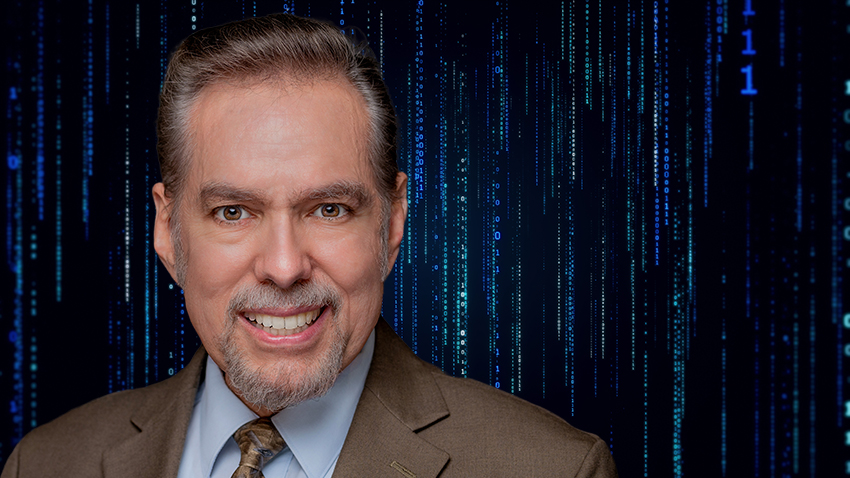
Beyond Business: Data’s Impact on Public Policy and Social Good
The transformative power of data extends beyond the realm of business. Governments and public institutions are increasingly leveraging data analytics to tackle complex societal challenges. For instance, anonymized data from mobile phone usage can be used to track population movement patterns, informing strategies for urban planning and disaster management. Additionally, analyzing social media data can help identify emerging public health concerns and track the spread of infectious diseases, enabling authorities to take timely preventative measures. These examples highlight how data can be harnessed for the greater good, fostering a more efficient and responsive public sector.
The vast potential of data, however, comes with inherent challenges and ethical considerations. We will explore these complexities in the following sections, examining the need for responsible data governance and navigating the delicate balance between harnessing data’s potential and protecting individual privacy.
The Alchemist’s Workshop: Transforming Raw Data into Actionable Insights
Data in its raw form resembles a lump of unrefined ore – devoid of meaning or purpose. It’s the data scientists, the modern-day alchemists, who possess the expertise to transform this seemingly inert material into a treasure trove of insights. Through a combination of sophisticated algorithms, statistical analysis, and domain expertise, they extract patterns, identify trends, and distill valuable information from the raw data.
The Pigeongram: A Precursor to the Data Revolution
The concept of data as a valuable asset may seem like a modern phenomenon, but its significance stretches far back in history. One fascinating example lies in the extensive use of carrier pigeons for communication throughout various civilizations, dating back as early as 3000 BC. These feathered messengers served as a vital source of information, transmitting crucial messages over long distances with remarkable speed and efficiency.
One such example lies in the ingenious pigeon post system employed in ancient Baghdad during the Abbasid Caliphate (750-1258 AD). This sophisticated communication network relied on trained pigeons to carry messages over long distances. Equipped with lightweight scrolls containing critical information, these feathered messengers could relay vital dispatches between cities and military outposts much faster than human couriers on horseback. The Abbasids meticulously documented and analyzed data on pigeon flight times, weather patterns, and optimal release locations, demonstrating a keen understanding of the factors influencing communication efficiency.
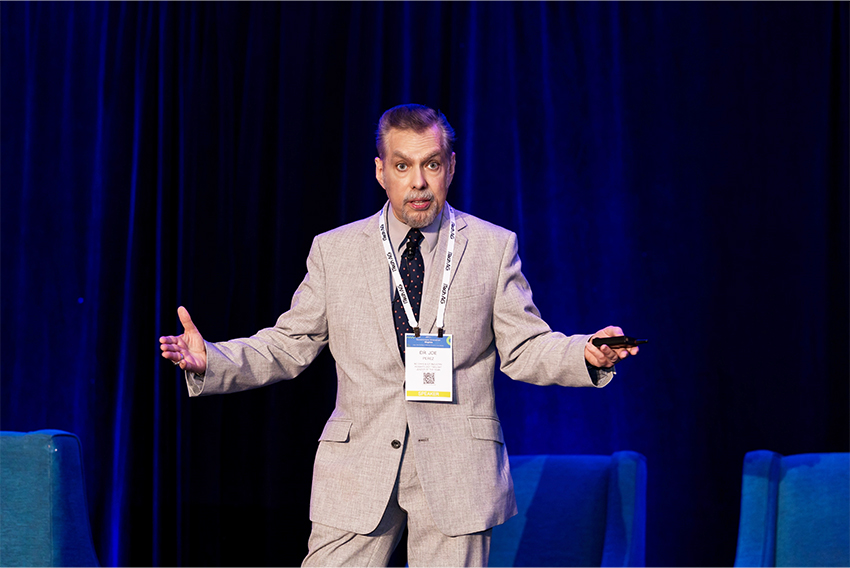
A more recent example occurred during the siege of Paris in 1870-71. Prussian forces surrounded the city, cutting off all conventional communication channels. Faced with this challenge, the French turned to a well-established network of over 3,000 pigeons to maintain communication with the outside world. These “pigeons voyageurs” (traveling pigeons) carried messages encoded in microfilm, relaying critical information about the city’s condition, military strategies, and pleas for assistance.
While the pigeon communication system pales in comparison to the sophisticated data networks of today, it serves as a historical testament to the enduring value of information and the ingenuity humans have employed throughout history to collect, transmit, and utilize data for various purposes.
Unlocking the Secrets of Customer Behavior: A Case Study in Data Analytics
Consider the case of Amazon, a pioneer in data-driven customer experience. The company meticulously collects data on customer browsing behavior, purchase history, and product reviews. Data scientists then employ sophisticated algorithms to analyze this vast dataset, identifying patterns and correlations that would be invisible to the human eye. This allows Amazon to personalize product recommendations, predict customer needs, and dynamically adjust pricing strategies. The result? A seamless and personalized shopping experience that keeps customers engaged and drives loyalty. This case study exemplifies the transformative power of data analytics, showcasing how raw data can be transformed into actionable insights that fuel business growth.
Quantifying the Value of Data: Unveiling the Statistics Behind the Story
The economic impact of data is undeniable. According to a study by IDC, the global datasphere is projected to grow to 175 zettabytes by 2025. This exponential growth signifies the increasing importance of data as the new gold. Furthermore, a report by McKinsey Global Institute estimates that data-driven insights could generate up to $10 trillion in additional value for the global economy by 2030. These statistics paint a clear picture: data is not just a buzzword; it is a powerful economic force with the potential to reshape industries and drive global economic growth.
However, the journey from raw data to actionable insights is not without its challenges. Data scientists grapple with issues of data quality, bias, and security. Ethical considerations surrounding data privacy and responsible data governance are also paramount. Let’s explore some of these challenges.

Bridging the Gap: Towards Adaptive Data Governance
Harnessing the Power of Data: Navigating the Ethical Landscape
While the statistics paint a compelling picture of data’s economic potential, it’s crucial to acknowledge the ethical considerations that accompany its collection, usage, and governance. As we plunge deeper into the vast ocean of data, navigating the delicate balance between harnessing its potential and protecting individual privacy becomes paramount. Robust data governance frameworks are essential to ensure responsible data practices and build trust with stakeholders.
Charting Your Path to Adaptive Data Governance
In this dynamic landscape of data governance, adaptability serves as the compass guiding us through uncharted territories. As stewards of information, we must embark on a continuous journey of learning and evolution. Imagine yourself amidst a vibrant community of data governance pioneers, each sharing their experiences and insights like stars illuminating the night sky. It is within these exchanges that we uncover hidden treasures of knowledge, strategies, and best practices.
Learning from the Collective Wisdom: A Community-Driven Approach
Take, for instance, the journey of a healthcare organization grappling with evolving regulatory requirements. By immersing yourself in their story, you gain invaluable insights into the challenges they faced and the innovative solutions they devised. Through forums, events, and mentorship programs, you connect with seasoned experts who serve as beacons of guidance, illuminating the path forward.
Embrace the Journey of Continuous Improvement
But the quest for adaptability extends beyond mere observation; it demands active participation and experimentation. Embrace each encounter, each conversation, as an opportunity to refine your approach and expand your toolkit. Together, we chart a course towards a future where data governance thrives amidst uncertainty, empowered by the collective wisdom of our community.
Cultivating Resilience in the Data Age: A Journey of Self-Assessment and Collaboration
Having established the crucial role of adaptive data governance in navigating the complexities of the data landscape, let’s dig deeper into the practical aspects of embarking on this transformative journey. Just as prospectors meticulously assessed the terrain before venturing into uncharted territories, organizations must embark on a voyage of self-assessment to understand their data maturity and identify areas for improvement.
Nurturing Your Data Governance Odyssey: Building a Collaborative Ecosystem
Embarking on a journey in data governance is akin to navigating uncharted waters, where the compass of knowledge guides our course towards success. While communities and events offer invaluable platforms for connection and collaboration, the true essence lies in the synergy of shared experiences and insights. Picture yourself amidst a vibrant tapestry of professionals, each thread weaving a narrative of innovation and growth. It is within these networks that mentors emerge as guiding stars, illuminating the path with wisdom and expertise. Yet, beyond the confines of virtual forums and conference halls, lies a treasure trove of opportunities waiting to be unearthed. Embrace each encounter, each conversation, as an opportunity to cultivate relationships that transcend the boundaries of space and time. Together, we embark on a quest for excellence, forging connections that shape the future of data governance.
As custodians of data integrity, our mission transcends the mere management of information; it embodies a commitment to excellence and resilience in the face of evolving complexities. Imagine a landscape adorned with an array of governance tools, meticulously aligned to fortify our data ecosystem against the tides of uncertainty and inconsistency. Yet, before we embark on this transformative journey, we must first begin a voyage of self-assessment, meticulously gauging our data quality maturity with unwavering precision. Guided by established frameworks and principles, we illuminate the path forward, revealing insights into our organizational strengths and areas primed for growth. Armed with this clarity, we forge ahead, aligning our governance strategies with our overarching objectives and aspirations. Together, we sculpt a future where data governance transcends mere compliance, empowering us to harness the full potential of our information assets.
A Historical Example of Collaboration and Resilience: The Human Genome Project
The Human Genome Project, a landmark international scientific collaboration launched in 1990, serves as a powerful testament to the transformative potential of collaborative data governance. This ambitious endeavor aimed to map the complete human genome, requiring meticulous data collection, analysis, and sharing across numerous institutions and countries. The project’s success hinged on establishing robust data governance frameworks that ensured data quality, security, and accessibility for researchers worldwide. This collaborative approach not only yielded groundbreaking scientific discoveries but also established valuable precedents for data governance in complex, large-scale scientific endeavors.
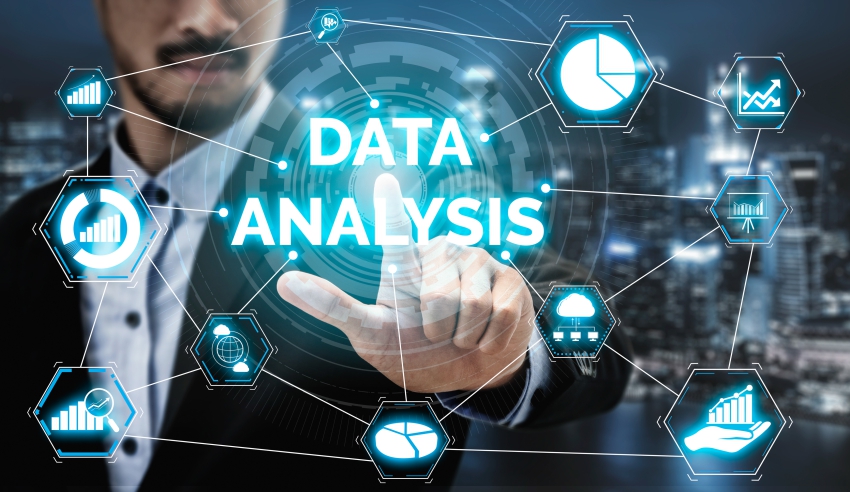
Leveraging the Tools of the Trade: Data Analytics Integration for Actionable Insights
Having established the significance of data governance in fostering a robust data ecosystem, let’s now turn our attention to the practical tools that unlock the true potential of this valuable resource. Data analytics tools act as the alchemists’ beakers and crucibles in the modern data landscape, enabling the transformation of raw data into actionable insights. However, navigating the vast array of available tools and ensuring their seamless integration can be a complex endeavor.
Navigating Data Analytics Tool Integration: A Practical Approach
Embarking on the integration of data analytics tools can be daunting, but with a strategic approach, you can streamline the process for smoother implementation. Consider a scenario where you’re tasked with enhancing customer insights for an e-commerce platform. Amidst the plethora of available tools, conducting meticulous research and comparison is paramount. Begin by identifying your project goals and the specific features required to achieve them. For instance, if you aim to analyze customer behavior across various touchpoints, tools offering robust data visualization and machine learning capabilities would be essential. Next, assess the compatibility of these tools with your existing systems and infrastructure to ensure seamless integration. Opting for platforms with user-friendly interfaces and comprehensive support can mitigate technical challenges and accelerate adoption. By meticulously aligning tool selection with project objectives and technical requirements, you pave the way for a smoother integration process, empowering your team to unlock valuable insights and drive impactful decision-making.
To quote from Peter Sondergaard once again, “The ability to turn data into actionable insights is the new competitive advantage.” This quote underscores the critical role of data analytics in today’s competitive landscape. By strategically integrating the right tools and harnessing the power of data, organizations can unlock valuable insights that fuel informed decision-making and drive sustainable growth.
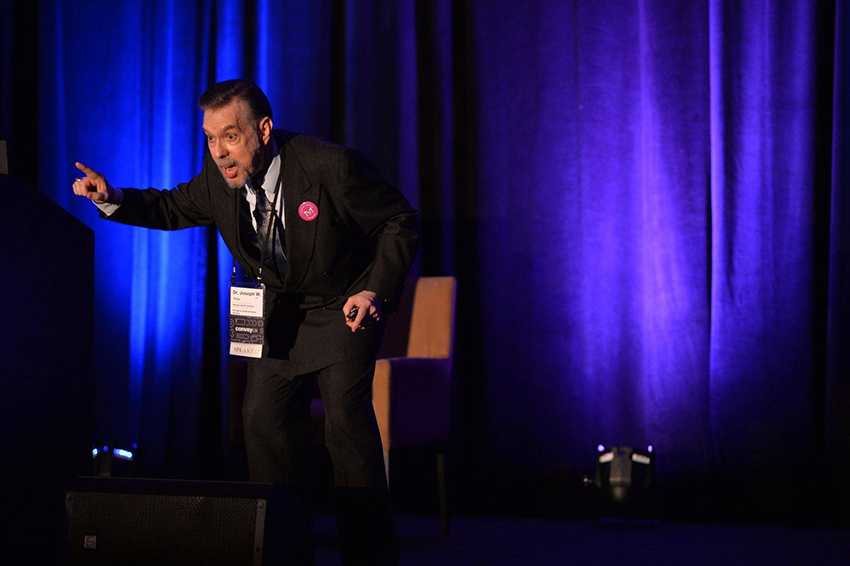
The Midas Touch of Data Analytics: Transforming Insights into Action
Having equipped ourselves with the tools and strategies for navigating the data landscape, we now stand at the precipice of unlocking its true potential. Data analytics empowers us to transform the raw materials of information into actionable insights, akin to the fabled touch of King Midas turning everything to gold. Businesses leverage these insights to optimize operations, personalize customer experiences, and stay ahead of the curve in a competitive marketplace. Investors, armed with data-driven analysis, navigate the financial landscape with greater precision, seeking algorithms that unlock hidden gems and generate substantial returns. From the targeted advertising that shapes our online experiences to the self-driving cars revolutionizing transportation, data serves as the fuel that propels innovation across diverse sectors.
The Midas Touch: Turning Data into Wealth, but with Responsibility
However, just as King Midas’s golden touch ultimately turned everything he cherished into a cold, unyielding metal, we must wield the power of data with prudence and ethical considerations. Unchecked data collection and analysis can erode trust, exacerbate societal inequalities, and undermine individual privacy. It is imperative to establish robust data governance frameworks that ensure responsible data practices, safeguard individual rights, and foster transparency in data collection and usage. Only then can we harness the true potential of data to create a more equitable and prosperous future for all.
The Global Exchange: Data as a Universal Currency, but Unevenly Distributed
Data, like gold in bygone eras, transcends physical borders and shapes the global landscape. It flows freely across continents through fiber-optic cables, connecting individuals and communities across the world. Governments, recognizing its strategic importance, amass vast troves of data for national security purposes. Tech giants, fueled by innovation and user engagement, monetize data to generate substantial profits. Unlike gold, however, data isn’t a finite resource; its volume explodes with every click, sensor reading, and digital interaction. This raises critical questions about data ownership and governance in our increasingly interconnected world. Who controls the access points to this digital Fort Knox? How can we ensure equitable access to the opportunities and benefits that data presents? As we grapple with these complex questions, it becomes increasingly evident that data transcends mere economic value; it holds the potential to reshape the global power dynamics of the 21st century.
The Oracle’s Warning: Proceed with Caution, but with Hope
As we continue plunging deeper into this data-driven era, we confront a multitude of paradoxes. The convenience of personalized experiences often clashes with our desire for privacy. The quest for transparency can be hindered by the opacity of complex algorithms. Our online interactions generate a wealth of data that fuels predictions about our desires, yet the inner workings of these algorithms remain shrouded in mystery. We stand at a crossroads, where the responsible use of data presents immense opportunities for progress, while misuse can lead to unforeseen consequences. The answer to navigating this complex landscape lies not in hoarding data like gold bars, but in harnessing its potential through ethical and responsible practices. By fostering collaboration, transparency, and accountability, we can ensure that data empowers us to build a better future, one line of code, one informed decision, and one ethical innovation at a time.
Remember: Data Isn’t Just Ones and Zeros; It’s the Heartbeat of Our Interconnected World
Recall the opening lines of our exploration, where we likened data to a new form of wealth, an invisible currency flowing through the veins of our digital age. We then dove into the historical context, examining the story of the Enigma machine and the pivotal role it played during World War II. The Enigma, once an unbreakable cipher, ultimately yielded its secrets to the combined forces of human ingenuity and technological innovation. This historical narrative serves as a powerful reminder of both the potential and the pitfalls associated with data. As we progress through this ongoing journey of discovery, let us not forget that data is more than just ones and zeros; it is the very essence of our interconnected world, a complex tapestry woven from our interactions, experiences, and aspirations. It holds the potential to be the new gold that shapes our destiny, but only if we approach it with wisdom, responsibility, and a collective vision for a brighter future.
A Sneak Peek into “The Madness Behind the Method”

Industry 4.0 featured Dr. Perez’s most recent book in April 2024 Below is the foreword to “The Madness Behind the Method,” written by US Navy retired Rear Admiral Danelle Barrett. She is also a best-selling author, keynote speaker, and independent director on various corporate boards. With more than 30 years of proven leadership expertise in digital transformation, innovative cyber and telecommunications strategy development and global operations, Barrett was named one of 2023’s Most Influential Women Corporate Board Directors by WomenInc. Here’s what she had to say about Dr. Joe’s book.
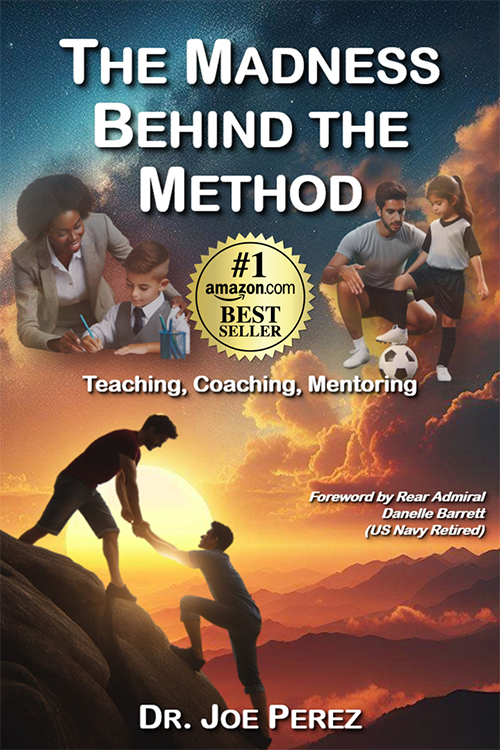 In Making Madness Behind the Method, Dr. Perez captures many important yet subtle concepts all leaders grapple with but need to address head on in a deliberate manner. His creative use of metaphor and nature draws the reader in, enabling self-reflection and action to mentor others more effectively and “cultivate a thriving workplace garden- Whisperwood.” His focus on three related but distinctly different concepts of leadership and their essential components- coaching, teaching, and mentoring provides sound, practical advice for leaders at all levels on concrete actions to take with employees and teams for their effectiveness to meet the organization’s mission and their own personal and professional growth. His distinct style of using metaphors, from nature to music throughout the book is very engaging, memorable and an effective learning tool.
In Making Madness Behind the Method, Dr. Perez captures many important yet subtle concepts all leaders grapple with but need to address head on in a deliberate manner. His creative use of metaphor and nature draws the reader in, enabling self-reflection and action to mentor others more effectively and “cultivate a thriving workplace garden- Whisperwood.” His focus on three related but distinctly different concepts of leadership and their essential components- coaching, teaching, and mentoring provides sound, practical advice for leaders at all levels on concrete actions to take with employees and teams for their effectiveness to meet the organization’s mission and their own personal and professional growth. His distinct style of using metaphors, from nature to music throughout the book is very engaging, memorable and an effective learning tool.
He expertly uses storytelling, case studies, and real-world examples to draw the reader in and visualize his concepts in a creative way that makes the reader remember the lesson from the story long after putting the book down. It makes his excellent prose even more relatable. His underlying focus on relationships is spot on and words all leaders need to take to heart. The use of wrap up concepts and Study Questions at the end of chapters reiterate the most salient points and reinforce key concepts for his audience to work on. I can envision as a mentor, taking these case studies and chapter take aways to hold brown-bag luncheon sessions with mentees and teammates to foster more robust and engaging conversations.
His focus on Emphasis, Evolution and Process give way to a broad but meaningful discussion about how these effect his essential components in teaching, coaching and mentoring. He deftly touches on the unique aspects and nuances of the effect between the three, providing powerful food for thought.
The author’s use of real-world, metaphorical tales and storytelling is very effective as seen particularly in the practical hands-on advice provided in the chapters that aligns mentoring, coaching and teaching with the realities of meeting organizational objectives (Planting the Seeds: Aligning Development with Purpose) and the chapter on Goals. That type of alignment and understanding is key for leaders to demonstrate how to accomplish practical matters like securing funding for training, retention, hiring, and incentive bonuses etc.
Finally, one appreciates the author’s advice in the end “Harvesting Growth” and “Tying it all Together” to find and continue to hone your personalized approach. Throughout his engaging book, the author has provided the tools to help get you there and to continue to evolve as a leader making others more successful than ourselves, what we all strive for.
Leading with Data, Driven by Purpose: An Inside Look at the Multifaceted Career of Dr. Joe Perez
INTRO : We caught up with Dr. Joe Perez, a true Renaissance man whose diverse talents and accomplishments span the public and private sectors. As a Senior Systems Specialist for the North Carolina Department of Health and Human Services, he leads high-impact technology initiatives while also serving as a fractional Chief Technology Officer for a fast-growing startup. Beyond his day jobs, Dr. Perez is an Amazon best-selling author with multiple #1 new releases, an internationally sought-after keynote speaker, and a passionate advocate for faith, family, and community. With so many impressive feats under his belt, it’s no wonder he’s tough to pin down. But we were determined to get an inside look at what fuels his boundless energy and drives him to excel across such a remarkable range of pursuits. In the following interview, prepare to be inspired by Dr. Perez’s insights on achieving work-life balance, defining true success, and leaving a lasting positive impact on the world.
1. You have a multifaceted career that spans both the public and private sectors. Can you give us an inside look into the various roles you play and the diverse array of responsibilities you juggle on a daily basis?
Dr. Joe : I’m a Senior Systems Specialist and Team Leader in the IT division of the North Carolina Department of Health and Human Services (DHHS). I really love my job. Besides all the cool tech stuff I get to do, I oversee the activities of my team, manage projects, and get to take processes apart, analyze how they work, figure out how to make them faster, then put them back together again. I get to liaise between high-level executive business partners and technical experts, figuring out how to facilitate communication between them. I develop functional, business, and technical requirements and solutions they can all agree to – and somehow make it all work so everyone’s happy. On the innovation front, I’m spearheading business intelligence and analytics initiatives for our data warehouse while simultaneously making it sleeker and more efficient.
In addition to my full-time leadership role at DHHS, I’m also a fractional Chief Technology Officer at CogniMind, a North Carolina startup. There, I lead the strategy for technology platforms and partnerships. I take the initiative in thought leadership, innovation, and creativity, and am one of the integral players in the rollout of new initiatives.
2. Stepping outside your roles in the public and private sectors, can you give us a glimpse into the other spheres that fuel your creativity and passion? What drives you to be so actively engaged across such a broad spectrum of interests and endeavors?
Dr. Joe : On the side, I speak at conferences (more than a hundred in the last three years alone). I’m passionate about technical topics, especially “all things data”, as well as professional development and motivational leadership. In my personal life, I publish a monthly newsletter called “The Patriot News” for the military ministry at my church. My wife and I are heavily involved in the church’s Spanish ministry – I teach, interpret, speak, direct the music ministry, among other roles.
 I also sing, play piano, write songs, serve on organizational advisory boards, and I’m honored to serve as a Gartner Peer Community Ambassador. Writing is a true joy – I’ve been published in several magazines and have a regular monthly piece for Industry 4.0. Beyond that, I’ve authored two books, co-authored a third, and am working diligently on my fourth book, which I hope to release before year’s end. It has been an incredible honor to experience multiple #1 New Releases on Amazon, by the grace of God. I’ve done voice-over work for schools and organizations, but most importantly, I cherish time with my wife and family above all else. Nothing means more to me than being with my loved ones.
I also sing, play piano, write songs, serve on organizational advisory boards, and I’m honored to serve as a Gartner Peer Community Ambassador. Writing is a true joy – I’ve been published in several magazines and have a regular monthly piece for Industry 4.0. Beyond that, I’ve authored two books, co-authored a third, and am working diligently on my fourth book, which I hope to release before year’s end. It has been an incredible honor to experience multiple #1 New Releases on Amazon, by the grace of God. I’ve done voice-over work for schools and organizations, but most importantly, I cherish time with my wife and family above all else. Nothing means more to me than being with my loved ones.
3. Dr. Joe, you’ve taken us on quite a fascinating journey, outlining how your diverse experiences as an educator, your growth at NC State University, and your cultivation of leadership qualities all converged to place you in the multifaceted roles you occupy today. Reflecting on this winding career path that has seen you transition from the classroom to the boardroom, keynote stages around the globe, and everything in between, what have been some of the defining moments or realizations along your journey that helped steer you towards your current vocational callings?
Dr. Joe: I began my professional life as an educator for ten years. In fact, all of my post-secondary education – my bachelor’s, master’s, and doctorate degrees – were in the field of education. That was my whole professional world before transitioning into IT in the early 90s when I started at NC State University as a Computer Consultant. Over the next 25 years there, I leveraged my communication, writing, and instructional design skills to develop training programs and speak at university events, alongside the amazing applications development, database design, and other IT work I tremendously enjoyed.
During those years, I was promoted to Computer Training Manager, then Analyst Programmer, then Business Intelligence Specialist. It was during this period that my passion for data analytics, data management, data storytelling, and data visualization was cultivated and honed.
In 2017, an offer I couldn’t refuse recruited me away to the NC Department of Health & Human Services. It was a major promotion – in fact, it was the best career move I ever made, both for me, and more importantly, for my family.
Getting back to your use of the word “journey” in the question, this “journey” of mine was three-fold, all woven together. First, my decade as an educator provided useful skills for my various roles at NC State as I rose through the ranks. Secondly, those 25 university years, especially my involvement across the entire spectrum of the business intelligence landscape, prepared me for leadership at DHHS and CogniMind in ways I couldn’t have known.
And third, regarding speaking at conferences: As I’ve taken on higher-level leadership roles, with my connections at both organizations and my 17,000-plus followers on LinkedIn, doors opened for amazing speaking opportunities – around 120 between 2020-2023, nearly half as keynotes. Most booked for 2024 are keynotes too. Speaking itself isn’t new; I’ve done it for decades. What IS new is speaking outside of my organization. By the end of 2024, I will have spoken at conferences hosted by cities in 25 countries on every inhabited continent. It amazes me as a virtual unknown! All of those factors, situations, experiences, circumstances, were woven into the fabric of where I am today. And lest I forget to give credit where credit is due, it’s all by the grace of God, to the glory of God. What a journey indeed!
4. Building on our discussion about the winding journey that has taken you to your current roles, I’m curious: In a remote work environment where lines can easily blur, how do you maintain that drive and sense of purpose on a daily basis to stay productive while also preserving your happiness and work-life balance?
Dr. Joe: You know, I’m glad you asked, because staying happy and productive has indeed become more challenging in the remote work environment many of us adopted during the pandemic. And even now that the pandemic is behind us, I suppose many people still find it challenging! Nevertheless, here are some things I do.
First and foremost, a strong work ethic was ingrained in me from my upbringing. My parents, Cuban immigrants who became naturalized citizens, worked tirelessly – many long hours, often at multiple jobs at the same time – to provide for my older brother Oscar and me. They instilled values of honesty, fairness, dedication, excellence, integrity, and hard work. Oscar has always been a phenomenal example of those values; truly embodying what it means to be a mentor.
Secondly, my manager trusts me implicitly to get the job done, which I’ve proven over the years. He knows if he assigns me something, it WILL get done with exceeded expectations. I don’t ever want to violate that trust or jeopardize our great relationship. Trust is a fragile thing, you know; it’s hard to earn, yet easy to lose, and nearly impossible to fully regain.
Lastly, I remember that I work at DHHS, and when I consider the mission, vision, & goals of this organization, serving the North Carolina public (often the most needy and vulnerable of them), and I know that the technical service, data intelligence, and reporting capabilities I’m facilitating will enhance their ability to do their job more efficiently. THAT makes it worth the trouble. THAT gets me through the day. THAT motivates me to excellence. So I can be happy knowing I played a part in making things better.
ALL of these factors certainly go a long way in helping me maintain a healthy work/life balance.
5. You’ve touched on an intriguing point about the double-edged nature of perfectionism. Striving for excellence is admirable, but how do you find the right balance between pushing yourself to meet high standards without becoming consumed or compromising your well-being? What has helped you navigate that tension between your inherent drive for perfection and the need to maintain perspective?
Dr. Joe: Sometimes I tend to be a perfectionist. If something isn’t exactly right, I’ll keep at it until it meets my satisfaction. In general, I would say that’s a positive trait, but not when I allow it to frustrate me into obsession. There’s an old saying derived from Voltaire: “Don’t let the perfect be the enemy of the good.” That’s one extreme.
Striving to do your absolute best, working hard to exceed expectations, practicing repeatedly until you’ve nailed it (I’ve played piano all my life – I know what I’m talking about!), rehearsing speeches, refining strategies – these are all good. It seems most people today settle for mediocrity; content with half-hearted efforts, allowing lack of commitment and dedication to breed stagnation. I believe mediocrity breeds stagnation – and if I’m not innovating, I’m stagnating! That’s the other extreme.
Neither extreme is healthy. One leads to a life of boredom and despair while the other leads to an endless cycle of agitation, frustration, and preoccupation (how’s that for a rhyme?). I’d really like to improve my balance here. I don’t EVER want to lose my edge, nor my desire to give 120% when I throw myself into a task, because as a Christian, there’s a Biblical principle that I feel compelled to try to live by. It’s one that says (and I’m paraphrasing here), “Whatever you do, do it heartily; give it everything you’ve got, because you’re really doing it for God & not for man.”
But I also want to balance that commitment to excellence with common sense about the difference between perfection and excellence. Not driving myself and others crazy in pursuit of perfection, nor beating myself up when I fall short.
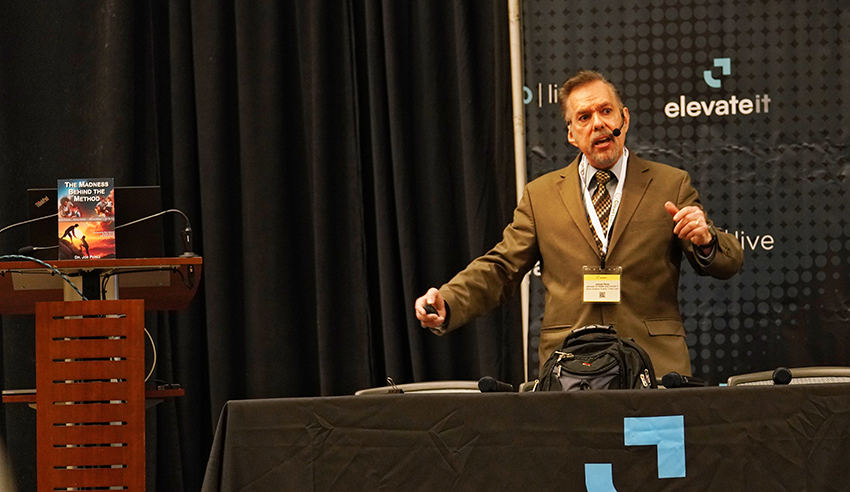
6. You’ve clearly demonstrated a passion for the written word, with multiple best-selling books to your name. I understand your latest work, “The Madness Behind the Method,” has also achieved the prestigious #1 New Release ranking on Amazon. What inspired you to tackle the topic of professional development and organizational training strategies in this latest literary endeavor?
Dr. Joe: You’re right, I do love to write. As an educator before transitioning to the IT field, I’ve always been deeply interested in professional development and ensuring people receive the highest quality training to perform at their absolute best. Unfortunately, in my experience, I’ve seen that companies and organizations don’t always approach employee training and engagement in the most effective way.
As a matter of fact, I have a presentation by the same title as the book — “The Madness Behind the Method” – and in it, I challenge my audiences to rethink their entire approach to professional development. Time and time again, after delivering this talk, I was encouraged to expand it into a full-length book. So that’s exactly what I did – taking the core concepts and ideas and fleshing them out into a comprehensive exploration of how organizations can revolutionize their training strategies to drive greater employee satisfaction, productivity, and retention.
Listen, my goal with this book is to inspire both individuals and institutions to take a hard look at their current methodologies and explore more impactful, innovative approaches to teaching, coaching, and mentoring their workforce. I truly believe this book has the power to transform the way people think about professional development – and I’m honored to share these insights with readers.
7. Your perspective on defining true success resonates – going beyond superficial metrics to achieving goals aligned with your values and positive impact. With that as the foundation, what is the guiding mantra or philosophy that propels you to continually raise the bar, persevere through adversity, and remain committed to that ongoing pursuit of purposeful achievement?
Dr. Joe: First, I need to define success. Some measure it by counting up the quantity of something achieved: how many pushups done in a minute, how many seconds they can hold their breath, the number of games won, dollars accumulated, awards received. I believe a more accurate definition may be achieving whatever goal you’ve set for yourself. That applies to the materialistic individual just as much as to the athlete, coach, writer, actor, financial tycoon, or spiritual person. For me as a Christian, my highest goal should be bringing glory to God by doing His will. If that means secondary goals like giving my dead-level best at work, loving my family, and helping others, then all those other things, like the bank account, the games won, the accomplishments made, all become a means to an end, as long as they remain secondary to and help facilitate that main overarching goal.
With that said, here is my guiding mantra: Seek to do better today than yesterday, and even better tomorrow. View each day as an opportunity not to one-up others, but to one-up myself. Jot down specific, measurable, achievable, relevant, and timely goals and actions to get there.
This takes courage – pushing forward in spite of your fear. Courage isn’t the absence of fear, but rather the victory over it. It also takes laser-focus determination, keeping that end goal in sight and not letting yourself get side-tracked or discouraged by obstacles or adversity or even defeat that might come your way. Stop calling them obstacles; see them as opportunities! Start viewing adversity as advantage and so-called defeat as determination.
I’m reminded of something Christopher Reeve once said, “A hero is an ordinary individual who finds the strength to persevere and endure in spite of overwhelming obstacles.” Coming from the man who played Superman, then had that terrible riding accident that left him paralyzed for the rest of his life. His challenges dwarfed anything I’ve ever encountered. Yet he never gave up.
Finally, it takes commitment – I’m not going to get very far if I haven’t committed myself to go for the long haul. This is a commitment that is willing to keep on going even when you get knocked down. GET BACK UP when that happens; REFUSE to be defined by defeat! I love what Winston Churchill said about this – or at least he’s been quoted as saying, “Success is not final, failure is not fatal: it is the courage to continue that counts.”
So, whatever you do, keep moving forward, and keep looking up!
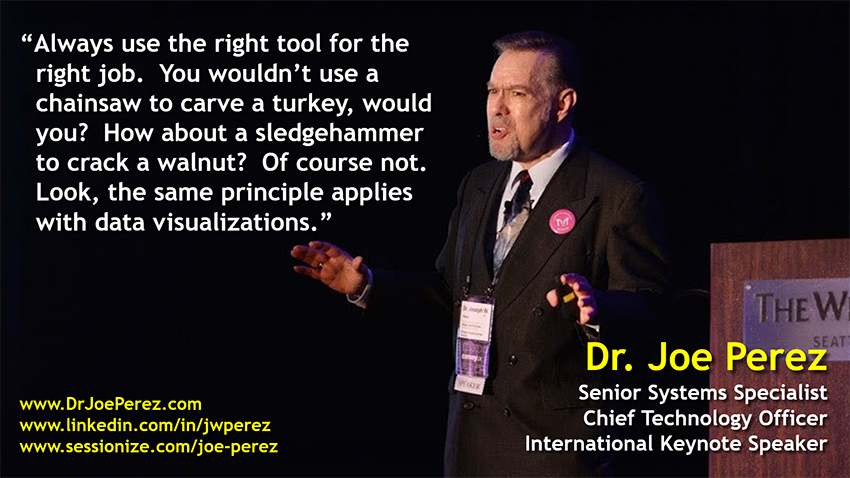
8. You’ve shared incredibly insightful perspectives on success, perseverance, and living with purpose. So, to bring it all full circle: When you envision your ultimate dream and legacy, what is the profound impact you hope to have on the world around you? What would it mean for you to be remembered as someone who not only achieved personal milestones, but truly made a positive difference?
Dr. Joe: Well, I’ve already hinted at some of this. Like everyone, there are selfish dreams like getting to 30,000 followers on LinkedIn, supplementing retirement income through speaking engagements, writing a fifth book, and so on.
But more than that, I want to provide the very best for my family. I want to be known as a guy who gave his very best to BE his very best; to be remembered for leaving my mark on this world and making it a better place. To know that I have brightened someone’s day and put a smile on their face. And most of all, to live a life that serves my fellowman and pleases God.
The prophet Micah once wrote, “He hath shewed thee, O man, what is good; and what doth the LORD require of thee, but to do justly, and to love mercy, and to walk humbly with thy God?” You know what? If someone can say that I did justly, that I loved mercy, and that I walked humbly with my God, then that’s the BEST dream I could possibly have!
Distilling Decades of Expertise: Dr. Joe Perez’s Rapid-Fire Nuggets of Wisdom
- I’ve been at this for a VERY long time; I know what works, I know what doesn’t work, and I know how to make something work if it doesn’t. I’ve been around the block and I’ve seen it all. OK – maybe not EVERYTHING, but quite a bit; man, quite a bit!
- I’ve dealt with micromanagers, lazy managers, hustle-bustle managers, hands-off managers, awful managers, and tremendous managers (like the amazing one I have now). I’ve learned how to get along with people, draw out their best qualities, figure out who can do which part of the job the best and delegate to that person. I know how to take a process apart, figure out how it works, then put it back together better than it was. It’s what I do – and I have a great time doing it!
- You know, I’ve learned the hard way how to deal with both credit and blame: deflect and accept. That is, deflect the credit, accept the blame; and NEVER the other way around.I’m passionate about what I do, and given the chance, I’m going to communicate that passion. But just communicating it? No, that’s not good enough for me; for you see, I won’t be satisfied until I have not only communicated my passion, but also ignited that same passion within the hearts and minds of those around me.
- How do you come out ahead through struggle? When others call it adversity, you call it advantage. When they see obstacles, you see opportunities. When they retreat, you compete. When they hesitate, you innovate. And when they say no, you say go! By the grace of God, you turn the tide and never slide.
- My work ethic is that you give 120% your very best and maintain the highest possible integrity. When you cheat your boss, you’re only cheating yourself. In my book, an expectation is a thing you EXCEED, not just a thing you meet.
- My overarching philosophy is that, as a Christian, I’ll try my dead-level best, by the grace of God, to live by the Biblical principles that challenge me by saying, “Whatever you do, do it heartily; do it with integrity; do it with excellence; do it with passion; do it with all your might; do it for the glory of God.”
To Download this Article in PDF Format
“Bringing Data to Life and Life to Data”
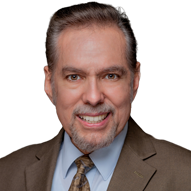
Dr. Joe Perez,
Team Lead / Senior Systems Specialist,
NC Department of Health and Human Services
Dr. Joe Perez ( Dr.Joe ) is also the Chief Technology Officer – CogniMind
To book Dr. Joe Perez for your speaking engagement please click here
Dr. Joe Perez was selected as the 2023 Gartner Peer Community Ambassador of the Year.
Dr. Joe Perez is a truly exceptional professional who has left an indelible mark on the IT, health and human services, and higher education sectors. His journey began in the field of education, where he laid the foundation for his career. With advanced degrees in education and a doctorate that included a double minor in computers and theology, Joe embarked on a path that ultimately led him to the dynamic world of data-driven Information Technology.
In the early 1990s, he transitioned into IT, starting as a Computer Consultant at NC State University. Over the years, his dedication and expertise led to a series of well-deserved promotions, culminating in his role as Business Intelligence Specialist that capped his 25 successful years at NC State. Not one to rest on his laurels, Dr. Perez embarked on a new challenge in the fall of 2017, when he was recruited to take on the role of Senior Business Analyst at the NC Department of Health & Human Services (DHHS). His impressive journey continued with promotions to Senior Systems Analyst and Team Leader, showcasing his versatility and leadership capabilities.
In addition to his full-time responsibilities at DHHS, Joe assumed the role of fractional Chief Technology Officer at a North Carolina corporation in October 2020. A top-ranked published author with over 18,000 followers on LinkedIn and numerous professional certifications, he is a highly sought-after international keynote speaker, a recognized expert in data analytics and visualization, and a specialist in efficiency and process improvement.
Dr. Perez’s contributions have not gone unnoticed. He is a recipient of the IOT Industry Insights 2021 Thought Leader of the Year award and has been acknowledged as a LinkedIn Top Voice in multiple topics. He holds memberships in prestigious Thought Leader communities at Gartner, Coruzant Technologies, DataManagementU, Engatica, the Global AI Hub, and Thinkers360 (where he achieved overall Top 20 Thought Leader 2023 ranking in both Analytics and Big Data). His reach extends to more than twenty countries worldwide, where he impacts thousands through his speaking engagements.
Beyond his professional achievements, Joe’s passion for teaching remains undiminished. Whether as a speaker, workshop facilitator, podcast guest, conference emcee, or team leader, he continually inspires individuals to strive for excellence. He treasures his time with his family and is a gifted musician, singer, pianist, and composer. Joe also dedicates his skills as a speaker, interpreter, and music director to his church’s Hispanic ministry. He manages the publication of a widely recognized monthly military newsletter, The Patriot News, and is deeply committed to his community.
To maintain a balanced life, Perez is a regular at the gym, and he finds relaxation in watching Star Trek reruns. He lives by the philosophy that innovation is the key to progress, and he approaches each day with boundless energy and an unwavering commitment to excellence. His journey is a testament to the remarkable achievements of a truly exceptional individual.
Dr. Joe Perez is Accorded with the following Honors & Awards :
https://www.linkedin.com/in/jw
Dr. Joe Perez is Bestowed with the following Licences,Certifications & Badge:
https://www.linkedin.com/in/jw
https://www.thinkers360.com/tl
Dr.Joe Perez is Voluentering in the following International Industry Associations & Institutions :
https://www.linkedin.com/in/jw
Dr.Joe Perez can be contacted at :
E-mail | LinkedIn | Web | Sessionize | FaceBook | Twitter | YouTube
Also read Dr.Joe Perez‘s earlier articles:

